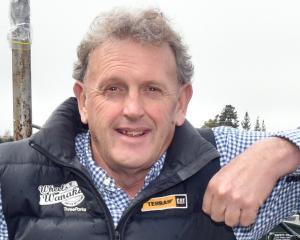
Southern Football chief executive Dougal McGowan told the Otago Daily Times that Dunedin City Council charges have risen sharply since 2018 and the organisation is bracing itself for another price hike.
Southern Football shelled out $42,202 to use the city’s venues and grounds in 2018. But those costs have swollen considerably.
This year, despite using six fewer fields, Southern Football was charged $98,119 and it expects the bill to climb to more than $100,000 in 2026.
"You can’t put the fees up to be able to cover all of that," Mr McGowan said.
"It’s just not possible because people can’t afford to play the game otherwise."
"We try to keep our game as cheap as we possibly can because ... we want to make it as accessible to everybody as we can.
"But these price rises are making it really, really difficult."
For one small community club in the region, who Mr McGowan declined to name, it could spell the end.
"The amount we have to pay for the ground that they use ... is more than what we get from them in fees.
"Next year this cost to the council will go up again for the ground usage and then lights and changing room costs on top.
"So, we’re going to have to have a conversation with them about maybe they might have to close.
"That’s a really sad indictment on what we’re doing in our communities."
Community sport is beset by other rising costs, and competition for funding has increased as the city’s sinking lid policy on class-4 gambling starts to bite.
The proposed Online Casino Gambling Bill could strip further funds from the community.
But McGowan said every small increase was felt, and it was forcing administrators
into making some tough decisions.
"Even though we’ve got more people playing the game, we’ve had to cut the number of grounds we can use because we just can’t afford it."
Otago Rugby Football Union chief executive Richard Kinley said the main codes had met to discuss how they could work together to address the impact increased ground charges will have on clubs and "ultimately participants".
"Most of our clubs actually operate really well, but they operate on a really fine margin," Mr Kinley said.
"However, these potential impacts of fees going up and the Online Casino Gambling Bill just have more of an impact, and we know that class-4 gaming is dropping slightly anyway across the country."
DCC group manager of parks and recreation Heath Ellis said staff were in contact with sports codes across the city and were always available to meet.
"Councillors asked for a review of fees and charges for sports fields to ensure equity between different codes," Mr Ellis said.
"Previously, some codes were paying up to 4.9% of total costs for sports field use, while others were paying as low as 3.2%.
"Staff presented councillors with a table detailing the potential costs to the different codes — recovering 4% of costs from all sports field users, or alternatively 5%.
"Councillors decided to consult the public on the 5% option, and later voted to confirm this amount.
"Just two submissions were received raising concerns about potential increases in sports field fees."
Sport Otago chief executive James Nation felt the savings to the ratepayers were minimal.
"When you look at the actual money that the council’s saving by going from a 4% to 5%, it’s negligible in the grand scheme of things," Mr Nation said.
"But the impact on an individual sports person is massive."












